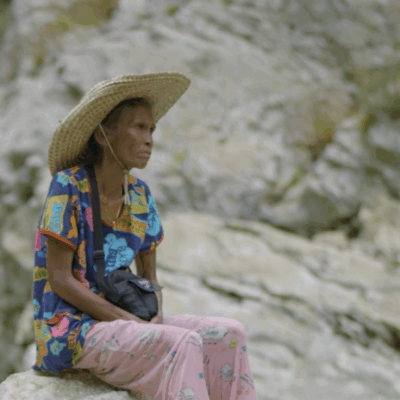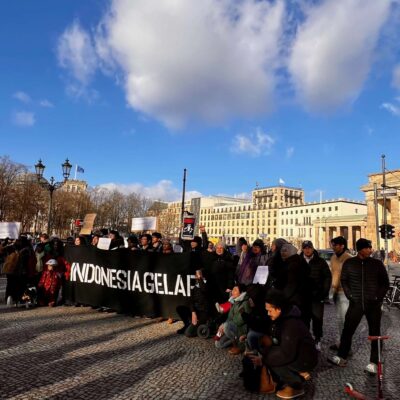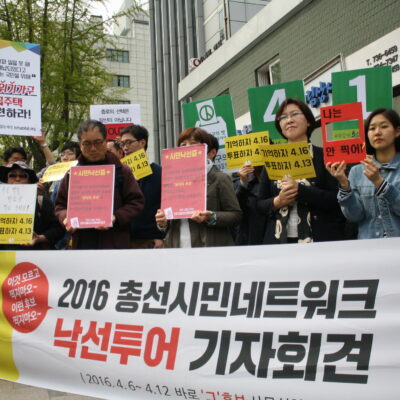The Philippine experience in so-called ‘Sin Tax’ reform offers rich lessons learned in congressional policymaking and the role of civil society. Sin Tax reform involved sustained increases in the excise tax rates for tobacco and alcohol products deemed ‘sinful’ because they are considered to pose significant social and health risks. These increases were implemented by the Philippines government after a sustained campaign by civil society.
Political background
The Philippine political system is largely based on the American system. Since gaining independence from the United States in 1946, the country has been under a formal democratic system (a brief episode under authoritarian rule notwithstanding). The present 1987 Constitution provides for a presidential structure that establishes formal checks and balances as well as separation of powers among the branches of government. At the head of the executive branch is the President who is elected for a single six-year term via a national popular vote. The legislative branch is represented by Congress, a bicameral body composed of the Senate and the House of Representatives. The House is made up of 300 or so members serving three-year terms elected by district and party-list organisation while the Senate has 24 members, each serving staggered six-year terms and elected nationwide. Congress passes laws, approves the national budget, and exercises oversight over the executive branch. The judicial branch is independent and is headed by the Supreme Court.
As with any presidential system, congressional legislation in the Philippines is by no means a quick and efficient process. But the peculiarity of the Philippine Congress as a law-making body is its strong inclination to subordinate itself to the President’s agenda. This is due in part to the strong presidential executive built into the 1987 Constitution complemented in no small part by a patronage-inclined and personality-oriented social structure. It is not uncommon for members of Congress to switch their political allegiance to the side of whoever is the sitting President. This provides little leeway for Congress to check on an imperious President or to pursue a coherent legislative agenda.
Congress has likewise been historically dominated by elite political families and captured by narrow and particularistic oligarchic as well as crony interests severely undermining its representative credibility and legislative role. As a result, congressional legislation often fails to reflect serious policy or ideological positions, especially in the House of Representatives. Legislation becomes primarily a function of seeking reelection rather than transforming or improving government policies and programs. Indeed, apart from congressional subordination to the executive, the legislature has seen itself to be a source of obstruction and delay that results from its institutional capture by particular interests making it difficult for economic reform measures to pass.
The Philippines has been widely regarded as a weak state captured by strong particularistic interests. As such, there is much difficulty in securing successful passage to legislative proposals especially for measures that stand to benefit the people. However, describing the Philippines as a defective democracy does not make it a hopeless case. There have been instances of development-oriented civil society groups pushing for significant social and economic reforms. For example, various CSOs have played a role in the enactment of the reproductive health (RH) bill of 2012; the Indigenous Peoples’ Rights Act (IPRA) 1997; and the anti-rape law in 1997.
How the Sin Tax reform law was passed
On 20 December 2012, then-President Benigno Aquino III signed the Sin Tax Law that modified excise taxes for tobacco products and alcoholic beverages.
Prior to the law’s enactment, tobacco and alcohol products were comparatively cheaper and this led to a higher incidence of smoking and alcohol consumption. Earlier attempts to increase taxes on such ‘sin’ products had been blocked by strong alcohol and tobacco lobbies—with the latter said to be the strongest lobby in Asia.
A non-governmental organisation (NGO) called the Action for Economic Reforms (AER) faced the challenge of pushing for tax reforms on sin products. It did so by adopting a multi-pronged strategy that included directly lobbying Philippine executive officials, key members of Congress, engaging the media, and mobilising civil society coalitions in order to sway public opinion and dislodge the dominance of the sin product lobby groups.
AER was able to set up a broad coalition of health professionals and advocates as well as farmers and youth groups that communicated the need for sin tax reform as a health reform measure rather than a simple revenue raiser. The broad spectrum of civil society encompassed economic reform groups (e.g., AER, Foundation for Economic Freedom , the University of the Philippines School of Economics faculty); health groups (e.g., the Philippine College of Physicians, University of the Philippines College of Medicine, and the Framework Convention on Tobacco Control, Philippines among others); former senior government officials (from the Department of Finance and the Department of Health and the National Economic Development Authority , among others); business groups such as the Makati Business Club); and various grassroots organisations. This made it possible for the coalition to draw much wider support from different sectors. AER also worked with and got the support of key finance officials and legislators. Congressional champions and sponsors were identified allowing the coalition to more efficiently and effectively lobby and secure passage of the reform. The coalition was particularly effective at exposing politicians who showed a bias towards the tobacco and alcohol industries. Most critically, the coalition received open support from no less than the President himself who also pushed for the reforms (despite being a smoker).
At the start of his term, President Aquino was reluctant to push for the increase in ‘sin taxes’ due to an electoral campaign promise not to raise taxes. The civil society coalition, therefore, reframed the issue. Instead of arguing that the sin tax reform was a tax increase, the coalition sent the message to allies in the executive that the amendment was a tax restructure. The restructuring was more about adopting a unitary tax rate for all tobacco products (then the tax rates for tobacco had four rates), a removal of the price classification freeze (the so-called legacy brands enjoyed protection from competition as their tax rates were frozen even as their prices went up over time, thus moving them to a higher price category with higher tax rates), and an automatic adjustment of tax rates to inflation. In short, the main reform was the tax structure, which had the effect of increasing taxes. Further, the coalition made health the principal objective. This enabled the sin tax reform to be linked to the Pangkalahatang Kalusugan Program (Universal Health Care Program), which was a priority of the Aquino administration.
To gain support for the measure from society as a whole, AER embarked on a communications strategy that conveyed several things about sin tax reform and seven ‘wins’: for the poor, youth, health, the economy, tobacco farmers, politicians and governance and the future. The youth and the poor were especially critical given the fact that these two groups were the heaviest consumers of tobacco and alcohol products and were more likely to suffer the adverse health effects of their consumption. Thus, the poor would gain most from the health benefits derived from reducing consumption of tobacco and alcohol products.
In relation to tobacco farmers, the 2012 Sin Tax law earmarked 15 percent of the incremental revenues from tobacco taxes for alternative livelihood and other economic projects for tobacco farmers and tobacco-growing areas. Hence an increase in tobacco taxes would mean an increase in the earmarking of tax collection that would benefit tobacco farmers.
AER crafted a bill on tobacco tax that was essentially the version of the bill (with some modifications) that was later adopted by the Department of Finance, Department of Health and the Cabinet. Essentially, this bill, with some adjustments regarding phasing of rates, was what Congress passed. Along with working with government, AER and other civil society groups also took part in efforts to exert pressure on certain politicians in both the Senate and the House to keep them from obstructing the sin tax reform initiative.
It is also important to note that the civil society coalition that championed the Sin Tax law was truly independent in the sense that it was a loose, informal alliance composed of mainly non-political or apolitical groups (e.g., the medical associations). Not a single political party was a part of the coalition. The coalition itself and its leaders were not politically partisan. While some members of the coalition were associated with political or ideological groups, the basis of unity of the loose coalition was non-ideological and non-political. Hence, the coalition was independent from the political administration even though it had a reformist character.
The importance of civil society to policy reform
Civil society organisations offer several built-in attributes that make them ideal policy advocates. They are freed from bureaucratic constraints, thus having the mobility and flexibility to quickly respond to changing conditions. They can be assigned sensitive tasks that the government has difficulty executing, including intelligence work, being assertive but also being able to engage with various sectors, including allies in government. Additionally, they are endowed with human, intellectual, logistical, and social capital resources (i.e., formal and informal networks) that allow them to carry out an all-round and sustained campaign.
People’s organisations are a subset of civil society consisting of groups that have mass members such as workers, urban poor, farmers, fishers, women, and youth. The 1987 Constitution (Article 13, Section 15) recognises and protects non-governmental and people’s organisations. At the same time, civil society groups recognise the importance of the State in initiating and sustaining much-needed reforms. It was for this reason that a number of CSO leaders joined government in the era after the authoritarian leadership of Ferdinand Marcos. One cannot underestimate the resilience and creativity of CSOs in getting the attention of key members of the legislature as well as the executive branch.
How are the members of Congress able to determine which measures to support or contest? Apart from the signal sent by the executive branch, Congress also relies on experts and advocates who provide research evidence to support their claims and positions. Research can be appreciated and used in policymaking in various ways, including using research to directly apply a solution to a policy problem, to affirm a particular position or prior belief, and during the period of amending and refining legislative proposals.
Outcomes
The 2012 Sin Tax Law achieved the following essential reforms:
- A steep tax rate increase, especially for tobacco.
- A shift towards unitary taxation for the specific tax on cigarettes (that is, one tax for all products, regardless of price and brand).
- Removal of the price classification freeze that protected legacy brands and perpetuated low tax rates.
- Indexation of the specific tax rates of tobacco and alcohol products to inflation (that is, annual adjustment of the tax rates to inflation).
- Compliance with the World Trade Organization’s rules by removing the discrimination against foreign-made distilled spirits through the adoption of a uniform tax to all distilled products, whether they are local or foreign brands.
- The passage of the law allowed for earmarking the bulk of incremental revenues towards health programs, particularly universal health care.
Additionally, and very importantly, there has been a sharp rise over time in the combined budgets of the Health Department and the health insurance program. There has also been a steep decline in smoking prevalence arising from the higher tobacco taxes.
Figure 1: Tobacco use in the Philippines 2009, 2015 and 2021 (in %)

Source: Philippines Congress
The Philippine sin tax legislation and the resulting reforms has gained global attention in policy, academic, and civil society and development circles. For example, the first edition of the ‘Tobacconomics’ Cigarette Tax Scorecard (2020), which covered tobacco tax policy performance between 2012 and 2018, ranked the Philippines number seven globally in total performance. Moreover, the Philippines ranked number one among all East Asian countries.
Lessons for future civil society action
Government is not monolithic and neither is it entirely impervious to change and influence from below. Perhaps without intending to, the Sin Tax reform campaign rendered the country’s policy making structures less opaque, somewhat open to civil society influence and ideas, and less intractable. Cultivating a culture of transparency and accountability in the country’s parliamentary structures poses many challenges but through determined and systematic efforts, it can be done. The Sin Tax campaign illustrates the ability of grassroots sectors to counter vested interest lobbies that have long dominated the legislative process in the Philippines.
The lessons from the 2012 experience have guided sectors of the economy towards other major tax reform initiatives intended to help fund universal healthcare programs. Legislation on tax policy that followed the 2012 Sin Tax law include a moderate increase in tobacco excise taxes as part of the 2017 Tax Reform for Acceleration and Inclusion (TRAIN) law, followed by a bigger rate increase in excise taxes on tobacco products, heated tobacco products, and vape products in 2019; another increase in excise tax rates for alcohol products in 2020; the imposition of an excise tax on sugar-sweetened beverages; and the 2021 Corporate Recovery and Tax Incentives for Enterprises (CREATE) law that lowered corporate income taxes for small, medium, and micro enterprises.
The tax reform experience of AER in 2012 has taught other CSOs to build strong networks of trust with government and with legislators against the interests of commercial lobbyists. This is obviously a process that takes time, commitment, and preparation. However, building trust with government does not mean unconditional support but rather a critical collaboration and principled constructive engagement. In addition to cultivating and earning the trust of the government, it is also important for CSOs to engage the wider society in a conversation that allows the public to express their support for reforms. No single organisation can succeed by itself—it needs to engage in partnerships across different sectors of society in order to drum up and sustain the call for reform from the bottom.
Given the powerful combined tobacco and alcohol lobby in the Philippines and the lobby’s ability to politically capture Congress, any legislative measure to increase taxes on sin products like tobacco and alcohol required strong support from the Executive and no less than the President. Importantly, it is crucial to utilise expert research knowledge on the issue to convince not just the public but also the legislators of the need to impose higher excise taxes on sin products. The sin tax reform campaign demonstrated that the outcome of policy to raise taxes, though a principal function of Congress, ultimately depends on the power of the presidency as well as the willingness of the Executive branch as a whole and, the influence of a broad coalition of civil society actors. Indeed, civil society has been a decisive factor or a necessary, although of course insufficient, condition in having the sin taxes legislated.
Authors:
Filomeno S. Sta. Ana III is the coordinator of Action for Economic Reforms (AER), a policy, research, and advocacy group focusing on macroeconomic issues specific to poverty reduction, equity, and sustainability. Men’s areas of interest are tax reforms, exchange rate and monetary policies, and governance. He is a columnist for BusinessWorld.
Jorge V. Tigno is a professor at the Department of Political Science, University of the Philippines, Diliman. He studies non-governmental organizations in national and local governance; labor migration in Asia; and electoral and party system reforms in the Philippines.
Image: Community groups and health advocates call for taxes on alcohol and e-cigarette taxes. Used with permission from Bawas Bisyo / Youth for Sin Tax Movement.




